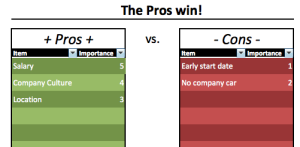Do you get upset the moment after your teacher says the two words “group project”?
You might start worrying about who you’re going to be assigned with, will they actually do work, or will they hurt your grade. Group projects can seem like the worst thing possible in school.
Everyone has had bad experiences or heard about bad experiences that make the process seem worse than it is. And the attitude of “I would rather just work by myself” doesn’t help.
But, group projects are extremely beneficial for learning both the class material and real-world skills. Hear me out, I haven’t mentioned the “Who Wants To Be A Millionaire” part yet either.
“Who Wants To Be A Millionaire?”
Do you remember the game show “Who Wants To Be A Millionaire?” with Regis Philbin as the host? The whole game involved contestants answering multiple-choice questions on trivia, which increased in difficulty and dollar value, and they had to answer 15 questions in-a-row correctly to get the $1 million.
Because answering 15 questions correctly is extremely difficult, contestants were given three lifelines for help. One lifeline cut the four (A B C D) multiple choice questions into two possible answers, the second let the contestant call an expert for thirty-seconds for advice, and the third lifeline was called Ask the Audience.
In Ask the Audience, all the audience members had a keypad and would choose A B C or D. The percentages of their answers were shown in a bar graph and then the contestant made his or her own decision.
So, most people have the notion that the expert is the best lifeline because there is this constant societal idea of following the expert. And, on the show, the experts did pretty good as they answered the question right 65% of the time.
But, surprisingly, the studio audience predicts the right answer at an amazing rate of 91%. A group of random people who attend the game show recording can answer a wide variety of topics significantly better than the experts. This is just one example of many where diverse crowds beat individuals.
Now, this isn’t scientific because many variables are unaccounted for, but this finding points toward the power of group intelligence.
Usefulness Of Group Projects In College
Group projects consist of the same initial task as working by yourself, you need to understand the material and what is being asked. Being in a group can help students teach others or learn from their classmates to get a better grasp of the project.
The difficult aspect of group projects is being forced to work with other people. Organizing a time to meet, communicating the expectations of what has to be completed by what date, and tough decisions can be hard to negotiate with other students.
Yet, if these areas are handled positively, then the group can do far more than an individual can. By splitting the work into segments for each person, the group can produce what an individual couldn’t do alone.
Similar to the “Who Wants To Be A Millionaire?” example, diverse groups, who can use their collective thoughts for an outcome, almost always outperform smart individuals.
Group Projects Are Over After School, Right?
Wrong, there is always some type of group project in the workplace. Whether it’s you and your boss, office co-worker, virtual co-worker, or client, being able to work with people is necessary for a successful product.
Even communicating internationally through email or Skype has similarities with a group project. Practicing the ability to get what you and others need will be rewarding.
There are very few industries that aren’t people oriented. That is why no matter the class, navigating a group project is one of the most useful learning experiences for the real-world.
Last Thoughts
The next time your professor mentions a group project, get excited. It’s a new opportunity to learn the material better, improve your communication skills, and prepare for your career.
Because group projects provide obvious value, spend time getting the most out of them in college when the stakes are lower. Then at work, you’ll run laps around those who aren’t as skilled in groups.
Comment below with what worries you about a group project. Even with this knowledge, group projects can still be somewhat scary.
(And for fun, watch this 3-minute video of the best contestant ever.)



